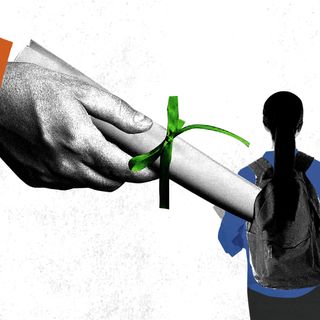Santhi Soundarajan, a celebrated track and field athlete who has won about 50 medals, had earlier alleged caste- and gender-based discrimination against a sports institute in Tamil Nadu. In the latest update, the Assistant Commissioner of the Tamil Nadu Police asked Santhi “gender certificate” — a discriminatory verification criterion — according to The News Minute.
In other words, Santhi was asked to “prove” she is a woman. The backstory to this is murky: in 2006, she was stripped of the silver medal she won at the 2006 Asian Games after failing a “gender verification” test. The said test looks at the testosterone level of the player; the objective is to ensure women with high levels of testosterone don’t participate in women’s events. In a report sent to the Indian Olympic Association, officials noted: “Soundarajan does not possess the sexual characteristics of a woman.”
The politics of gender verification tests in sports are a complex interaction of legal issues and moral ones. “It is to be noted that the Supreme Court of India has declared through its judgment in the NALSA vs Union of India case that every person has the right to self-identify their gender. Police or court has no right to question gender identity/expression,” said the southern regional representative of the National Council for Transgender Persons, Gopi Sundar.
The judgment Sundar speaks of is a landmark ruling, wherein the apex court legally recognized transgender persons’ right to self-determination for the first time and discussed “gender identity” in detail.
“The lawmakers themselves are not following the law and he has no right to ask for the gender certificate,” said trans woman activist Kalki Subramanian. “Will lodge a complaint against the concerned police officer with the Chief Minister of Tamil Nadu and the DGP of state police against this.”
Related on The Swaddle:
Olympic Guidelines No Longer Require Trans Women to Have Low Testosterone Levels
Moreover, it is the misogyny of these verification tests that are particularly grating. For one, the idea of someone having to prove their self-identity is regressive and patriarchal.
In the present case, after Santhi was denied her medals and identity, her coach Rajan Abraham reportedly harassed, humiliated, and hurled casteist abuses at her. The National Commission of Scheduled Castes had to intervene to investigate the matter.
Two, the assumption at play here is a body can only have two combinations of chromosomes — XX for females and XY for males. Science has graciously fact-checked this belief: there can be multiple chromosome variations present at a time.
One of the most controversial aspects of sex-verification tests is the fact that it is assumed that only two combinations of chromosomes – XX for female and XY for male – can exist in a body. This, however, is not true; a woman can have both the Y and X chromosomes. Santhi, in particular, was diagnosed with partial androgen insensitivity syndrome (PAIS); a condition where a person can have underdeveloped male genitalia in some cases and female genitals and breasts in others.
“The very foundation on which sex tests have been built neglects and excludes all kinds of variations limiting itself to a chromosome binary and gender suspicions which arise out of a patriarchal understanding of what gender and biological sex are,” wrote Isheeta Sharma.
Moreover, the incident represents the anxiety over gender and bodies that don’t neatly conform. That the issue at hand lies at the intersection of caste and gender is telling. It shows how only a certain type of femininity is the norm, leaving everyone else subject to questioning and surveillance about their bodies and identities.




